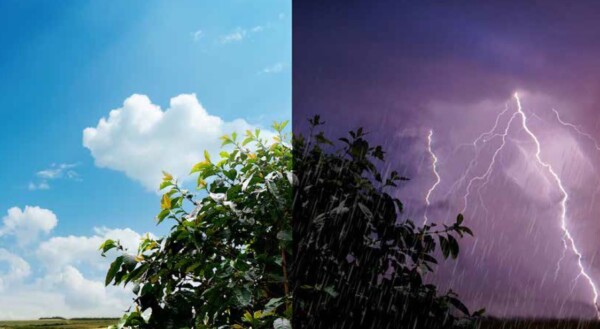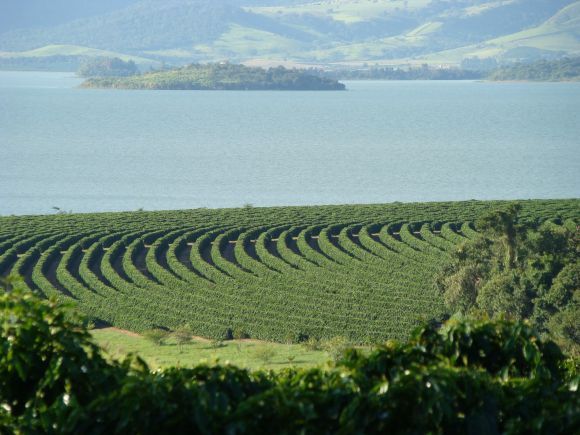
Global discussions highlight good practices promoted in Cecafé’s sustainability programs.
In March the United Nations (UN) Intergovernmental Panel on Climate Change (IPCC) published its sixth summary report on the current cycle of assessments on anthropogenic global warming.
Despite the urgency and the emphasis on the need for action on several fronts at a much faster pace to contain temperature increase below 2°C by the end of this century, the document states that there are sufficient technologies to reverse the climate crisis.
Regarding agriculture, global scientists assess that climate change reduces food security and affects water security, hampering efforts to achieve the Sustainable Development Goals (SDGs). Among the effective measures to adapt to climate change are: development of new cultivars, improved water management and storage on farms, good practices for soil and water conservation, and more sustainable approaches to agricultural production management.
Connecting the themes climate change and water security, also in March, on the 30th anniversary of the World Water Day, the UN held the World Water Conference in New York, USA. The event aimed to bring together the Organization’s member countries, its agencies, civil society, and the business sector to discuss initiatives aimed at accelerating the 2030 Agenda, especially in relation to SDG 06 – Drinking Water and Sanitation.
For the agricultural sector, which is highly dependent on water to ensure food security, SDG 06 is intrinsically related to the rational management of water resources and the adoption of soil and water conservation practices.
The Council of Coffee Exporters of Brazil (Cecafé), together with its members, has developed programs, through its Social Responsibility and Sustainability Pillar, with the objective of disseminating good agricultural practices related to the rational use of water and the conservation of natural resources.
Through the Distance Learning Platform of the Informed Producer Program, which will be available as of April, coffee growers and workers in the sector will have access to training on these good practices, based on the Coffee Sustainability Curriculum of the Global Coffee Platform (GCP).
Among the practices aligned to SDG 06, the following stand out (i) correct disposal of waste generated by the rural property, avoiding pollution of natural resources; (ii) identification and recovery of degraded areas; (iii) preservation and recovery of native vegetation conservation areas; (iv) optimization of water use, via the adoption of technologies that avoid unnecessary use and waste; (v) monitoring the quality and quantity of water consumed; (vi) correct sizing of the irrigation system, giving preference to more efficient technologies, such as drip systems; (vi) soil conservation practices, which improve its properties and the infiltration of water, consequently raising the levels of the water table; among others.

Reinforcing the link between climate change and water security, many of these practices are also aligned with the mitigation and adaptation challenges highlighted in the 6th IPCC report. As measured in the Carbon Program, of Cecafé’s Social Responsibility and Sustainability Pillar, the adoption of conservationist practices that improve the physical, chemical, and biological characteristics of the soil, including the preservation of humidity, results in a negative carbon balance of coffee plantations.
The stage of the Program developed in Minas Gerais aimed to measure the impact of the transition from conventional practices on coffee farms to those that contribute more organic matter to the soil and keep it under vegetal cover, generating benefits associated with regenerative agriculture. The results of the research, which was conducted by Prof. Carlos Cerri (Esalq/Usp) and Imaflora, highlights the magnitude of the environmental service associated with Brazilian coffees, since a negative carbon balance of around 10.5 t CO2eq/ha of cultivated coffee was obtained.
Continuing this Program, in March Cecafé started the stage that will be developed in the State of Espirito Santo, with the objective to evaluate the environmental impacts of the adoption of good agricultural practices and the best technologies in conilon coffee plantations representative of the main producing regions of the state. In addition, this project will measure the addition of carbon resulting from land use change for the cultivation of conilon coffee. The results of this research, which is also scientifically conducted by Prof. Cerri and Imaflora, will be available by the end of this year.
With the backing of science, the Brazilian coffee exporting segment, represented by Cecafé, has the mission to generate credible information about the sustainability of Brazilian coffee farming, in line with the main global challenges, in addition to supporting the continuous improvement of the adoption of socio-environmental governance (ESG) criteria throughout the Brazilian coffee production chain.
[¹] https://www.ipcc.ch/site/assets/uploads/2023/03/Doc4_Approved_AR6_SYR_SPM.pdf
[²] For more information, please visit https://www.produtorinformado.com.br/
Marcos Matos
CECAFÉ CEO
Silvia Pizzol
CECAFÉ Sustainability Manager


Leave A Comment